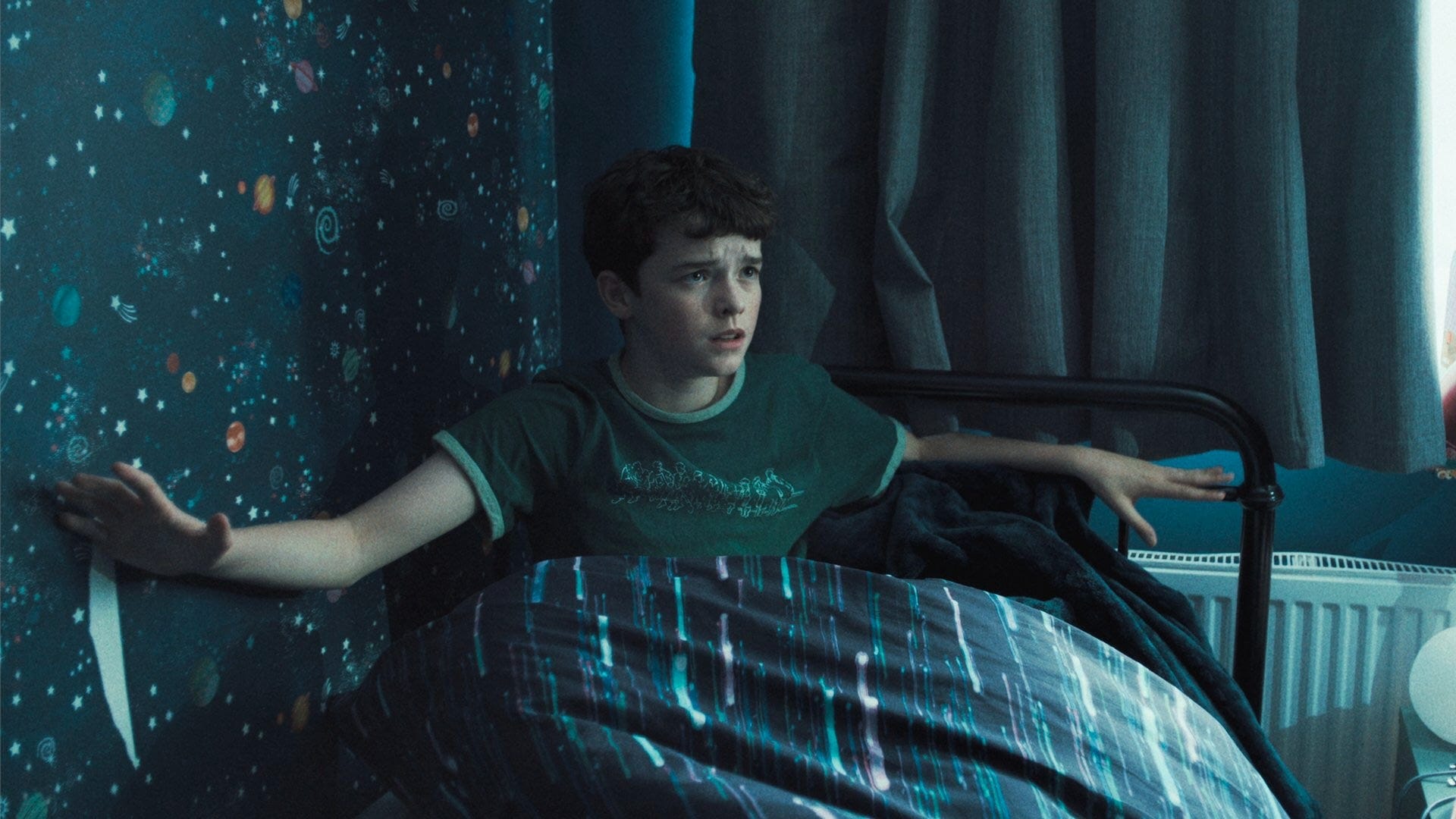Here's what red pill, misogyny and other manosphere terms mean

In Netflix’s new mini-series "Adolescence," which follows a 13-year-old boy accused of murdering his classmate after becoming radicalized online, characters say Jamie Miller (Owen Cooper) is “red pilled.”
"The red pill is like, 'I see the truth.' It’s a call to action by the manosphere,” Adam, played by Amari Bacchus, says in the show about an Instagram comment. “She’s saying he’s an incel.”
What does it mean to be “red pilled,” and what is the manosphere? Here’s what experts want parents, teens and educators to know.
What is the manosphere?
The manosphere is a digital collection of websites, videos and forums that promote male supremacy and advocate for traditional gender roles.
Creators who believe men are subjugated in modern society and blame women for that oppression provide a pipeline for men seeking advice about romantic rejection, physical self-esteem and economic insecurity to fall into radicalism and misogyny. The manosphere also has ties to white supremacy, anti-LGBTQ rhetoric and antisemitism.
What is the red pill?
Creators across the manosphere use terms like “red pill” and “black pill” to describe their outlook on gender roles and relationships.
The term “red pill” comes from a scene in the 1999 movie “The Matrix” where a character chooses between a red pill that reveals the realities of the world and a blue pill offering blissful ignorance.
Those in the manosphere use it to refer to being awakened to supposed “truths” about gender roles, like the idea that 80% of women are attracted to 20% of men, meaning most men won’t find romantic satisfaction.
What is misogyny?
Misogyny refers to the hatred, discrimination, or dislike of women because of their gender. While sexism is discrimination based on gender, misogyny refers specifically to hatred of women. Misogyny can manifest in general hostility, objectification and violence committed against women.
Is the manosphere declining?
No. The manosphere is constantly evolving as it grows to reflect modern social media sites.
When short-form content platforms began offering monetization options for creators, the manosphere grew to proliferate social media.
University of Wisconsin-Madison public affairs professor Mariel Barnes, whose research focuses on backlash to gender equality and the manosphere, says the manosphere started to coalesce online around 2008 and grew with the rise of blogging websites.
What signs should parents look for that their child could be falling into the manosphere?
In one mother's TikTok video that amassed over 2.4 million views, she explained how an off-handed comment hinted to her that her son may have been exposed to content that disparaged women. "We were just having a normal conversation, and he said to me 'well, women are gold diggers anyway.' " During their conversation, she asked him questions and he eventually showed her the video where he heard similar comments.
A TikTok user who commented on the viral video wrote: "Mine said '...well women are supposed to be mothers.' " Another commented her 14-year-old suddenly began using the word "females" instead of women or girls. (The original poster replied: "a very good sign, that's how they're referred to in those videos.")
Parents should also look out for terminology used in the manosphere. In the series “Adolescence,” detectives learned that emojis – such as hearts, kidney bean and the 100 emoji – had different meanings that nodded to the manosphere.
Dr. Gail Saltz, an associate professor of psychiatry at New York-Presbyterian Hospital and Weill Cornell Medical College, recommends parents be aware of behaviors that could point to mental health struggles, such as more time alone with a device, mood changes and poor grades in school.
Parents should also keep an eye on their teen’s social media usage. Teenage years are a key time of experimentation when boys test out different personalities and behavioral patterns, according to pediatrics doctor Ran Anbar, the author of “The Life Guide for Teens.”
As a result, teenagers dealing with common physical or romantic insecurities may be curious about a variety of male internet creators, and inadvertently enter the manosphere through gaming or health spaces if they’re consuming content without a critical eye.
“Radicalization happens when you keep being exposed to the same idea over and over again, and you're not exposed to contrary ideas,” Anbar says. “The algorithms keep feeding you the same information.”
How can parents talk to kids about the manosphere?
In the viral TikTok video, the mom began her line of questioning by asking her son what women in his life he would consider to be gold diggers.
When he couldn't name one, she pivoted to his sourcing and asked her son what he thought about the men in the videos making these assertions: Do they look like they know what they're talking about? Are they in functional relationships?
“She guided her son in some evidence-based thinking, which is smart because that is the way out of conspiratorial thinking,” Saltz says. "A trusted relationship has the best chance of questioning this supposed truth that this child has been offered as a belief system… Moms are in a good position to do that.”
Anbar says parents should investigate if there’s a deeper reason behind why their child is seeking out this content, like romantic rejection or low self esteem.
Discussing that underlying issue requires open communication and trust. Anbar says parents should talk to their teens when they’re calm, and be prepared to understand their thought process and offer alternatives.
“That means listening fully, not cutting them off when they say something you think is inappropriate or stupid, listen fully,” Anbar says.
Adrianna Rodriguez contributed reporting.
Rachel Hale’s role covering Youth Mental Health at Paste BN is supported by a partnership with Pivotal Ventures and Journalism Funding Partners. Funders do not provide editorial input. Reach her at rhale@usatoday.com and @rachelleighhale on X.